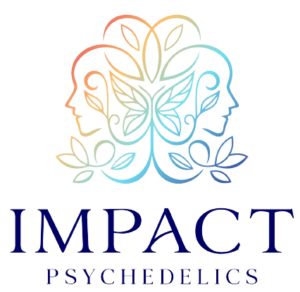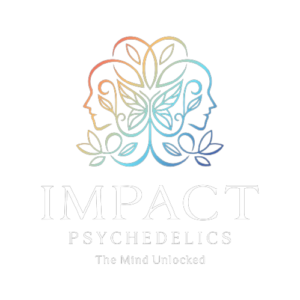
Ketamine vs Psilocybin: Which One is Right for You?
In recent years, there has been an increasing interest in the therapeutic use of psychedelic drugs, such as ketamine vs. psilocybin (magic mushrooms). Both are powerful tools for treating a range of mental health disorders. But which one is right for you?
In the following sections, we’ll explore the science behind each drug and discuss their potential therapeutic uses so that you can make an informed decision about your treatment.
Psychedelics For Therapeutic Use
Psychedelics are experiencing an exciting resurgence for both recreation and within the medical community.
For decades, these drugs have been used by indigenous cultures and in spiritual contexts throughout the world to promote healing and personal growth. However, in the 1950s, psychedelics such as LSD and magic mushrooms emerged in the western psychological and psychiatric community. Nevertheless, it was short-lived due to the prohibitive legislature in the mid-1960s effectively ending all major psychedelic research programs.
In recent years, though, there has been a renewed interest in the therapeutic potential of psychedelics. This has led to a resurgence in research and clinical trials, exploring the use of these drugs to treat mental health disorders such as depression, anxiety, addiction, and PTSD.
The two main psychedelics we’ll be focusing on in this article are ketamine vs psilocybin (commonly found in magic mushrooms). Both of these drugs have been studied extensively, with promising results. Let’s take a closer look at each one.
The Science of Ketamine
Ketamine is an anesthetic drug that has been used for decades in medical settings. Both Ketamine and its S enantiomer, Esketamine (Spravato), work by blocking certain NMDA receptors in the brain, which leads to a temporary dissociative state and increased circulation of serotonin and dopamine in the brain. This can lead to an antidepressant effect in some individuals, making it a potential treatment for treatment-resistant depression and anxiety.
In addition, ketamine has been studied for its potential to reduce suicidal ideations, making it one of the only drugs that have been found to show promise in treating this condition.
With its high livability and short-acting effects, ketamine is shaping up to be one of the best treatment plans to combat conditions that seemed untreatable before.
The Science of Psilocybin
Psilocybin is a psychedelic found in certain species of mushrooms, also known as magic mushrooms. Its “mystical” properties are traced back to its mechanism of action, or how it interacts with the receptors in our brains. Unlike ketamine, psilocybin works by agonistically interacting with serotonin receptors in the brain, leading to a range of effects including alterations in mood, perception, and cognition.
The therapeutic potential of psilocybin has been studied for a wide range of applications, from treating addiction to depression and PTSD. Studies show that it increases the cerebral blood flow to the frontal cortex (frontal hyper-frontality) while normalizing the hyperactivity of the medial prefrontal cortex. Both effects result in its anti-depressant and anti-anxiety effects.
In addition, psilocybin has been studied for its potential to reduce cravings and help individuals overcome tobacco, cocaine, nicotine, or opioid addiction. Socially, psilocybin has also been used to help individuals with terminal illnesses find peace and acceptance, as well as reduce the fear of death.
Ketamine vs Psilocybin
Now that we’ve discussed the science behind these two psychedelics, let’s compare and contrast their effects and potential therapeutic uses.
Length of Psychedelic Effects
Both ketamine and psilocybin produce psychedelic effects, that is, alterations in perception, cognition, and mood. Psilocybin can last for hours with a lengthy come-down period while ketamine tends to last around 90 minutes with a relatively shorter landing period.
Therapeutic Uses
Ketamine has shown promise in treating treatment-resistant depression, anxiety, addiction, and PTSD. Psilocybin has also been studied for its potential to treat depression and anxiety, as well as help individuals overcome addiction and find peace with terminal illnesses. However, more research on psilocybin is needed to extract its full potential and mitigate its side effects.
Current Research and Long-Term Effects
Currently, research has been limited mostly to humans with clinical trials. More studies are needed on the long-term effects of these psychedelics, psilocybin plants, and mushrooms.
Pioneering plant-based psychedelic research companies such as The Psyence Group, based in Canada, and the Biotech Research and Development Institute (BRDI), located in Jamaica are leading the charge in researching the therapeutic potential of psilocybin (magic mushrooms).
Safety and Regulation
Ketamine has been approved by the FDA for the treatment of mental health conditions in the United States since 1970, while psilocybin is currently illegal in most countries including the USA. However, certain states have begun to decriminalize the possession of personal use quantities of mescaline and psilocybin mushrooms such as Denver, Colorado, and Oakland, California.
These loosening regulations reflect the potential of these psychedelics to become more widely accepted for treating a variety of mental health issues as well as its socially approved uses.
Ketamine Therapy At Home
Ketamine and psilocybin both offer potential therapeutic benefits and have been the focus of considerable research in recent years. Although Ketamine is thoroughly researched and FDA-approved, more studies are needed to better understand psilocybin and its long-term effects. Despite this, both ketamine and psilocybin show promise for treating various mental health conditions and substance abuse problems.
At Impact Psychedelics, we provide ketamine therapy at home to help individuals suffering from treatment-resistant mental health conditions. Some conditions include major depressive disorder, anxiety, PTSD, and so on. We prioritize your comfort and safety, so you can be sure that our treatment plans are personalized and tailored to your needs.
Contact us today for more information about our ketamine therapy plans today!

